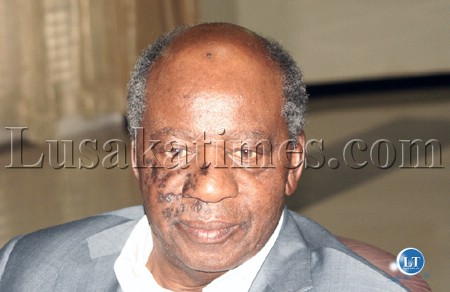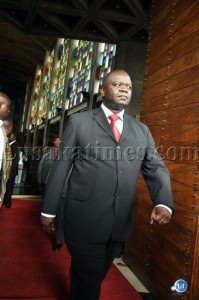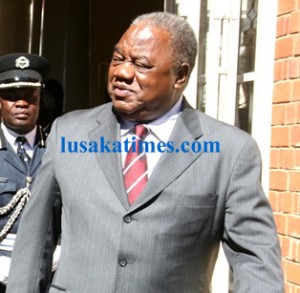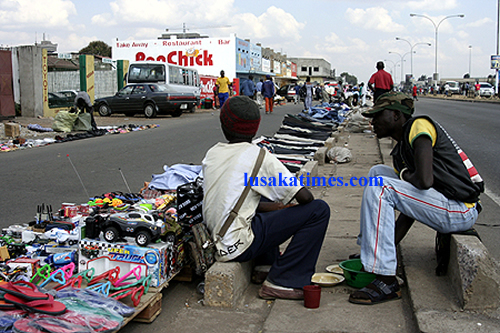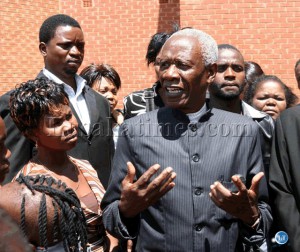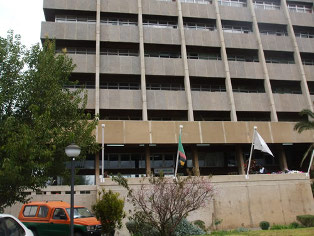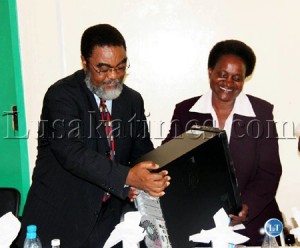
FORMER Zambia Revenue Authority (ZRA) commissioner general Criticles Mwansa has been named in the alleged irregular transactions in which the commission single-sourced projects worth over K230 billion (US$45 million and two million pounds) in favour of Cargo Scans and the Zambia Border Protection Company (ZBPC).
This was during the on-going hearing of the Kingsely Chanda ZRA commission of inquiry into the operations of the institution at the Mulungushi International Conference Centre. ZRA director of administration Tenthani Banda said the institution single-sourced after correspondence signed by Mr Mwansa addressed to the Zambia Public Procurement Authority (ZPPA) director Samuel Chibuye seeking authority to single-source on account that Cargo Scans had worked with the suppliers of the scans.
Mr Banda said the justification for single-sourcing was that Smith Detectors worked with Nuctech who supplied the scanners and were knowledgeable about the features of the scanners. Mr Chanda and his team dismissed the claim, saying there was no guarantee that no other firm in the world could run the scanners and expressed concern that the border facilities had been left in the hands of a foreign firm, which was a security risk.
Mr Banda told the commissioners that ZRA received guidance from ZPPA through a letter dated June 2, 2009 and that the letter was signed by director general Samuel Chibuye. The first contract was signed on December 12, 2008 and was for the procurement of railway cargo and vehicle inspection systems and three scanners while the second was single-sourced through a contract signed on April 24, 2009 for managing the scanners. Mr Banda said the institution proceeded to sign the contract after it received correspondence from former Ministry of Finance permanent secretary Emmanuel Ngulube that the contract had been authorised by the Director of Public Prosecutions (DPP).
When Mr Chanda wanted to know his opinion as regards the single-sourcing of firms to provide such a costly exercises, Mr Banda maintained he would not issue any opinions but insist on making reference only to what was contained in the documents in his possession. Public Private Partnership (PPP) director David Ndopu, who also appeared before the commission, said Cabinet ministers who sat as council members made directives which had to be implemented in disregard of the law.
“We were uncomfortable with the whole thing but we were directed by the council of ministers to single-source. Like I said that our role is to advise but you cannot push the Cabinet ministers. They will just say ‘look, you are wasting your time, we have already decided’. They were in a hurry to do certain things and that shows in the number of concessions they signed,” Mr Ndopu said. Mr Ndopu said ministers were overzealous and overused their powers while experts such as the PPP had no power in the deals. Mr Chanda said PPP had become meaningless because they opened up to irregularities, especially in the construction of the Kasumbalesa border post.
He said the customs and excise law was the only institution legally empowered to open and close borders and wondered why such a sensitive area could be handed over to a foreign private firm, which amounted to holding the country to ransom.
An insurance broker, Christopher Lukonde accused ZRA director of finance Kabaye Mwale of engaging in corruption and cancelled a contract that was signed in his favour in preference for a named firm that won the insurance deal without a proper explanation. Mr Mwale, however, denied the allegation and said ZRA always advertised its insurance business. He said he made his observations about the sharing of resources at 15 per cent for the Zambian Government while 85 per cent want to ZBPC.
President Michael Sata last month constituted a commission of inquiry on ZRA to establish the awarding of tenders by management, illegal activities in the collection of taxes and other matters incidental to the operations of ZRA. A trade consultant Gilbert Nkamba submitted that the decision to engage ZBPC was a security risk because foreign firms could not be trusted with a border of a nation. He claimed that he uncovered secret payroll between 2001 and 2006 where senior officials received gross salaries instead of net salaries.
[Times of Zambia]


